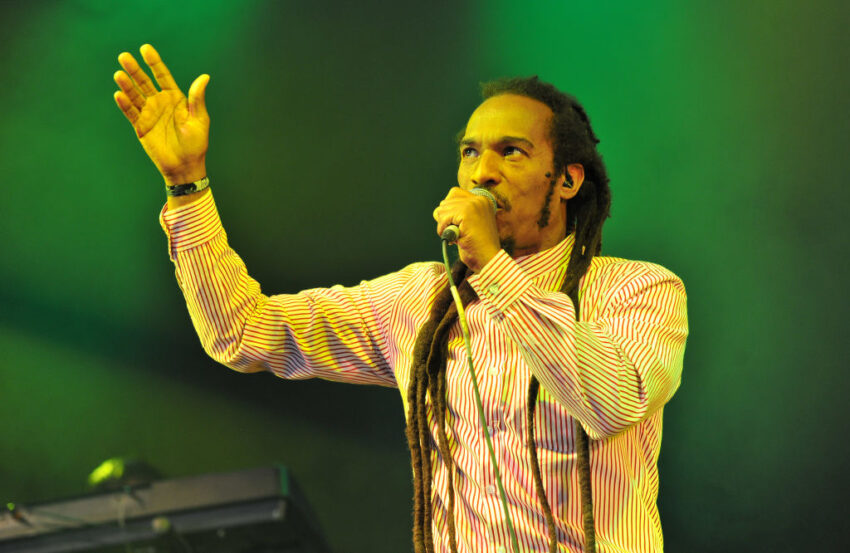WHEN I speak to Benjamin, he tells me it’s snowing where he is, and he’s spent almost all night working in the studio. Still, he is gracious, and continues answering questions thoughtfully, even when we are well over time.
Without any reservation, the poet describes himself as a revolutionary anarchist. But he also believes it’s important to sit and speak with people he doesn’t agree with.
“I’ve learned, even when you’re having an argument with somebody to listen deeply to their side,” he explains.
He strikes me as a man at peace with himself. The journey he has taken to get here is the topic of The Southbank Show on Sky Arts. In the programme, he shares his first ever experience of racism.
I ask him whether he thinks discrimination in this country has changed over time.
“The consensus now is that racism is bad,” he explains.
“So anybody who wants to get into politics talks about diversity.”
But Zephaniah is tired of the word, and the way it’s become a box-ticking exercise.
“Instead of trying to be more diverse, why don’t you just stop being racist?” is the question to ask these institutions, he says.
Like many Black Britons, he lived through a period where coming home from a late night out meant running from members of the National Front, or fighting them.
“Where did those racist thugs from the streets go? They didn’t disappear. They haven’t all died,” he tells me plainly.
Some of them are now in positions of power, he says. And the others struggle to admit their guilt and apologise for their involvement in racist systems.
Crime
When discussing his childhood, Zephaniah tells me the young boy who committed crime and ended up in prison could have had a different start. All he needed was someone to ask how he was. But no one ever did.
The poet describes his family growing up as “divided and at war.”
“And when I got really angry. I went out and put a brick through a window, or had a fight with somebody or stole something,” he tells me.
Which leads us on to the topic of police. During recent Black Lives Matter protests, Zephaniah felt it was time to let a new generation lead. And he was inspired by the likes of John Boyega who reminded him of himself, protesting against apartheid with the same raw emotion.
His own students got him to come out and join them. And I hear the pride in his voice when he speaks about how intelligent young activists are.
For Zephaniah, calls to defund the police are not controversial. He shares that his own cousin Mikey Powell died the same way George Floyd, with a police officer’s foot on his neck. Mikey, he tells me, also said he couldn’t breathe and called out for his mother.
The poet does not know what we should replace police with. But he does think the question should be debated publicly.
“Why do we keep trying stuff that’s not working?” he asks me. And I feel the same fatigue with reform after reform.
It is here that Zephaniah describes himself as a revolutionary – and an anarchist at heart.
He suggests that Black people could stop paying the taxes that pay police.
“If we, just for one day, went on a collective strike,” he goes on.
“My gosh, this country would stop.”
Storytelling
The angry, young poet who would take to the streets and protest against Babylon is still there, he tells me. But he channels that into his art now. Time spent with Nelson Mandela means he intimately understands the way creatives can change the world.
With The Black Writers Guild, he hopes to hold the publishing industry accountable and ensure that talented Black writers (and publishing professionals) get the opportunities they deserve.
For Zephaniah, Black storytelling is important – not only because we must own our own narratives, but because it can help us, as a community better understand each other.
He refers to the sometimes strained relationship between Black men and women, and has previously publicly spoken about apologising to a former partner he hit.
The poet was also an ally of gay people before it was popular. And he faced pushback for it.
“You can’t just follow your community. Sometimes your community may get it wrong,” he tells me.
“There was a time when all we spoke about was what the police did to us.
“Now, we’ve also got to talk about what we do to ourselves.”
The Southbank Show on Sky Arts featuring Benjamin Zephaniah airs on Sunday 6 December at 22:45pm.


Comments Form